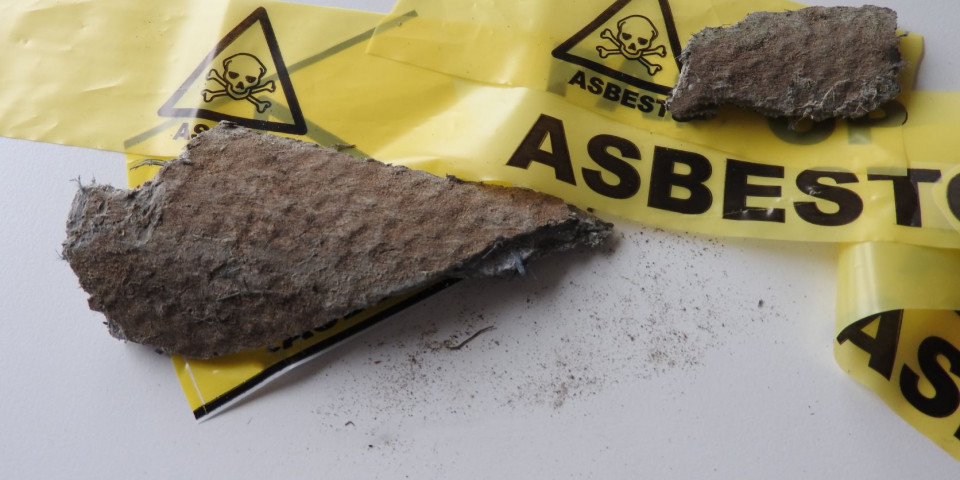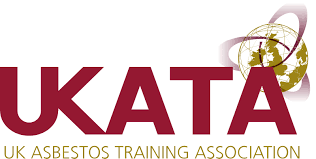Latest News
What is UKATA?
Posted on Thursday, 30th September 2021

One of the biggest risks to worker health when completing jobs on older building sites is coming into contact with asbestos. These fibres are a silent killer, with thousands dying of asbestos-related illnesses every year.
Today’s blog takes a look at UKATA, one of the leading bodies in charge of asbestos awareness training. Here, we take a look at what their training involves and how it can help prevent workers from getting serious ill as a result of asbestos exposure.
What does UKATA stand for?
 UKATA stands for the UK Asbestos Training Association.
UKATA stands for the UK Asbestos Training Association.
Since forming in 2008, they have set the standard for asbestos training in the UK. Their purpose is to ensure that workers are aware of the dangers of asbestos and make the right precautions on site. Fundamentally, their goal is to improve practice across sectors and industries to reduce the number of people getting seriously ill and dying from asbestos exposure.
At ESS, we are delighted to have our asbestos training courses approved by UKATA. In 2018, we were proud to receive the Advertising Campaign Award at the UKATA Excellence Awards for our positive impact on the asbestos industry.
What is asbestos?
Asbestos is the name of a group of fibres which were commonly used in building work throughout the 1900s. These fibres are incredibly strong, versatile and cheap, which made the material very useful for a variety of building projects. However, it has since become clear that asbestos is incredibly harmful to people’s health.
As asbestos fibres are very small, they can be easily ingested by workers and people living in the property, often without them even knowing. Once in their body, asbestos fibres can cause a range of problems for sufferers, with the lungs most commonly affected.
Asbestos has been linked to many illnesses, including a variety of cancers. This includes mesothelioma, a specific form of cancer directly caused by the substance. According to statistics from the Health and Safety Executive, there were 5,000 asbestos-related deaths in 2021, with 2,369 of these caused by mesothelioma.
When was asbestos banned?
The substance was banned for use in the UK in 1999. It is banned in most developed countries, but remains legal in countries such as Brazil and Russia. As well as the substance being banned from use, it also must be disposed of appropriately in a manner that does not risk workers, the public or the environment.
Any buildings built before 1999, such as houses, schools and warehouses, have the potential to contain asbestos. Because of this, it is vital that anyone performing building work on older properties is aware of how to identify asbestos in order to avoid the substance.
What does asbestos look like?
Asbestos can be incredibly hard to identify due to the fibres being so small and flexible. There are several different types of asbestos, each with different properties which make them especially useful in certain types of building material. There are 3 main types you are likely to come across in the UK, commonly identified by their different colours:
 Chrysotile - White asbestos (pictured). The most common type of asbestos which is primarily used in roofing but also added to many products such as cement, tiles and walls.
Chrysotile - White asbestos (pictured). The most common type of asbestos which is primarily used in roofing but also added to many products such as cement, tiles and walls. - Amosite - Brown Asbestos. Commonly used in insulating boards.
- Crocidolite - Blue Asbestos. Incredibly strong and thin. Considered the most dangerous type of asbestos.
There are three additional types of asbestos which are incredibly rare and unlikely to be found on UK sites. These are known as:
- Anthophyllite – Brown (very similar to amosite)
- Tremolite – White or Pale Green
- Actinolite – Grey or Green
How many types of asbestos training are there?
At ESS, we provide a couple of different UKATA-approved asbestos training courses…
Asbestos Awareness
Our Asbestos Awareness UKATA course provides learners with a full break down of the risks and properties of asbestos. It will help learners develop the knowledge needed to avoid coming into contact with the substance and inform them what to do if they encounter it.
This half day course will provide successful learners with a UKATA certificate, proving they have the knowledge needed to protect themselves and others from the risk of asbestos when working in a range of environments.
Non-Licensable Work with Asbestos
We also provide the UKATA Non-Licensable Work with Asbestos course. This one-day training course provides both the theoretical knowledge and practical skills to work around ‘low-risk’ asbestos containing materials.
Non-licensed work is defined by HSE as where the risk of asbestos is ‘sporadic and of low intensity’ and does not exceed the legal control limit of 0.1 asbestos fibres per cubic centimetre of air. This course will not provide you with the training needed to carry out licensed asbestos removal with ‘high risk’ levels of asbestos.
How long does asbestos awareness certificate last?
Successful learners on our asbestos awareness course will be issued a UKATA-accredited certificate which is valid for 1 year. Due to the massive dangers of working around asbestos, it’s important for workers to regularly renew their training to refresh their knowledge and keep up-to-date with the latest developments.
Training with ESS
Want to know more about how ESS can meet your training needs? Explore our full list of courses, NVQs and apprenticeships by visiting our online course index. You can also speak directly to a member of our team by calling us on 0115 8970 529. Alternatively, you can email us at info@essentialsiteskills.com.


